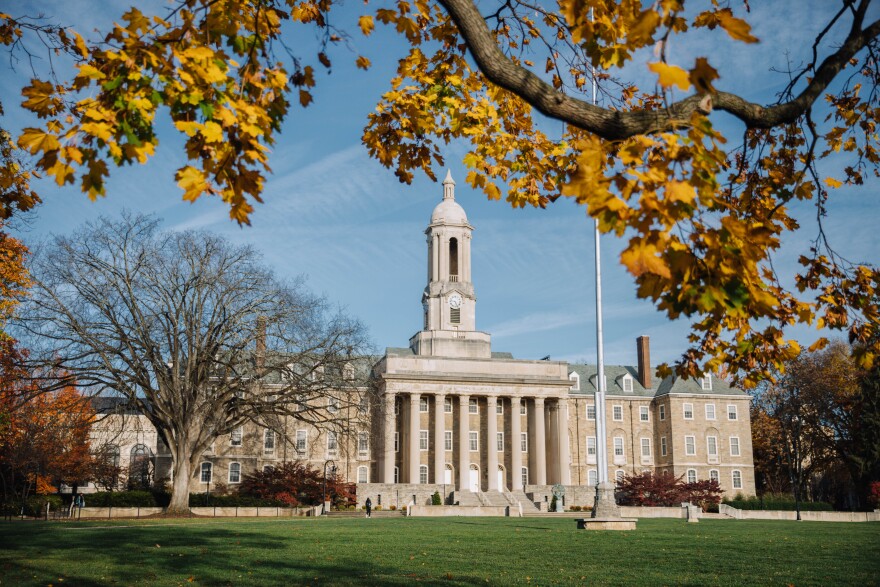Penn State University and the Pennsylvania Department of Education want the state’s highest court to overturn a recent lower court ruling that sided with Spotlight PA and stop the release of internal Board of Trustees documents.
The case could have major implications in the state for public access to documents stored in cloud-based services.
Last week, the university and state agency each filed a “petition for allowance of appeal,” asking the Pennsylvania Supreme Court to hear the public records case. There is no timeline for the court to decide whether it will hear the arguments and the court denied 87% of requests to review a lower court decision in 2024, according to the court’s annual report.
Spotlight PA is represented pro bono by the Reporters Committee for Freedom of the Press and the Cornell Law School First Amendment Clinic. Paula Knudsen Burke, the Pennsylvania attorney for RCFP, said in a statement: “The Commonwealth Court rightly made clear that Penn State trustees cannot shield certain records from the public simply by storing them in a file sharing system or alleging they contain proprietary information. We will continue to push for access to these records on behalf of Spotlight PA so that all Pennsylvanians can better understand how a prominent state-related institution — supported with millions of dollars of public money — is operating.”
A Penn State spokesperson told Spotlight PA in an email that the university does not comment on “pending litigation.” The state education department did not respond to a request for comment.
In May 2023, Spotlight PA filed public records requests with Pennsylvania’s agriculture and education departments for documents the agencies’ secretaries used while serving on Penn State’s governing board. While the university is largely exempt from the state’s Right-to-Know Law due to a legal carveout, a 2013 court ruling said records that the agencies’ secretaries used as trustees could be accessed by the public.
The Office of Open Records ruled in 2023 that some of the records the newsroom requested should be made public. Penn State and the Department of Education appealed the decision to Commonwealth Court.
Penn State, in legal filings and in court in September, argued the state agencies did not possess or control the records Spotlight PA sought because Penn State housed the files on Diligent, a cloud-based, file-sharing service. The online system allows the university to control who can access which files and whether the records can be downloaded.
The court sided with Spotlight PA in its decision last month, ruling that Penn State’s argument was “without merit.” Taking the university’s position, the court said, would contradict the intent of the state’s open records law for transparency and would “perversely incentivize Commonwealth agencies, local agencies, and affected third parties like Penn State to utilize remote servers and/or cloud-based services, in order to ensure that they would no longer need to disclose what would otherwise constitute public records.”
Penn State was also ordered to unredact portions of a 2022 document given to trustees about the university’s “fiscal challenges” and altering the budget to better align with Penn State’s “priorities and values.”
In its petition to the state Supreme Court, Penn State said the lower court wrongly determined that the agency secretaries received the records and therefore could provide them to the newsroom. By providing documents to trustees through Diligent, the university controls who can “download, print, forward, or otherwise obtain the document.”
The file-sharing service, the university wrote, “is the electronic equivalent of a Penn State official holding a physical document in their hand and inviting the Secretaries to look at the document. Importantly, in this analogy, the Penn State official never lets go of the document and the Secretaries never possess the document.”
The education department, in its filing, said the lower court’s decision ignores the intent of, and improperly expands, Pennsylvania’s open records law.
Spotlight PA, through its legal team, will file its response to the petition in the coming days.
Earlier this year, the Penn State board settled a separate lawsuit that Spotlight PA brought against it over alleged violations of Pennsylvania’s Sunshine Act, the state law mandating transparency from governing bodies.
As part of the settlement, the board agreed to release more information about its private meetings, including who is leading the gatherings and the topic discussed. The board also participated in a legal training in September on the open meetings law and what governing bodies must do to comply with it. The terms of the settlement will last for five years. Read the full agreement here.



